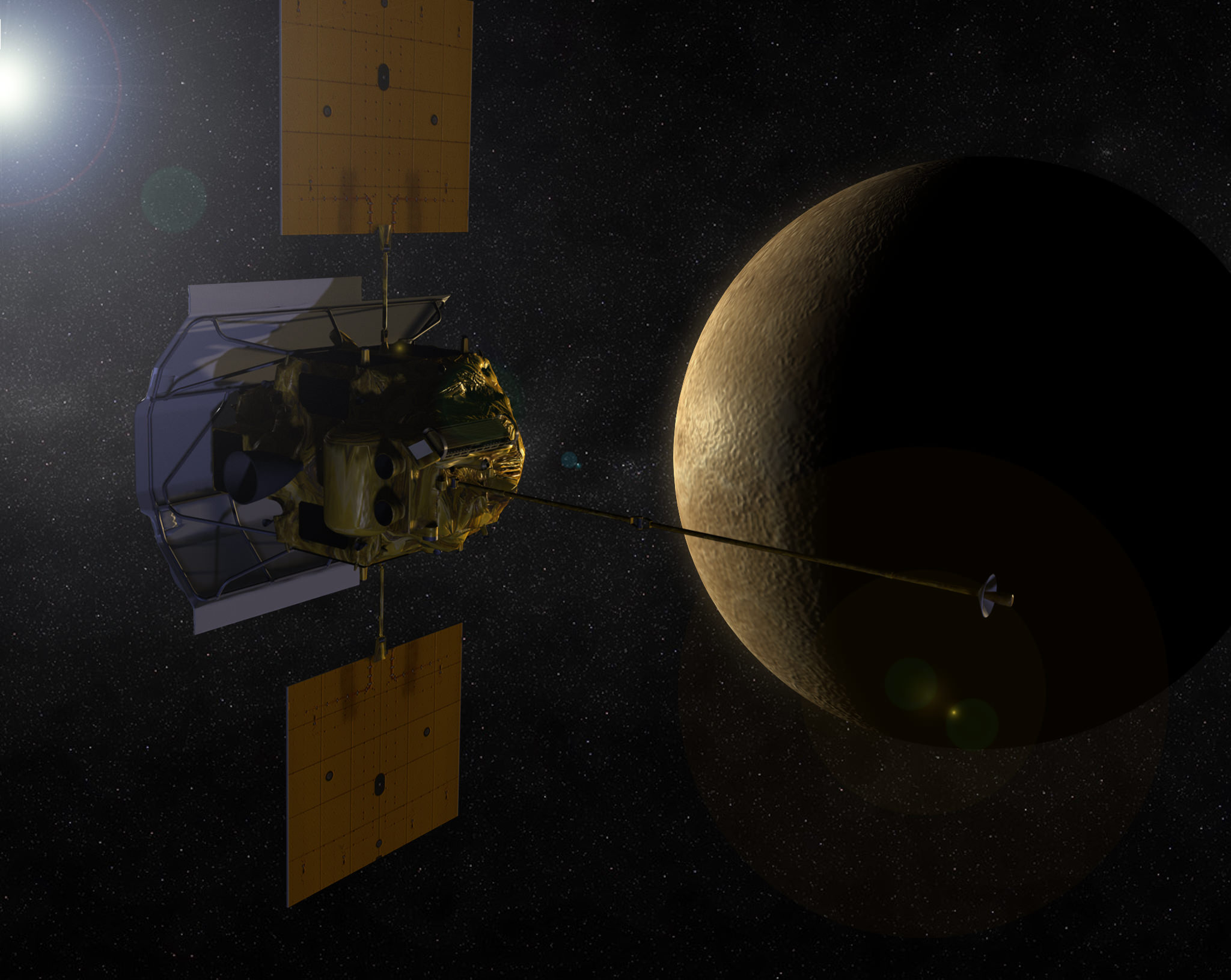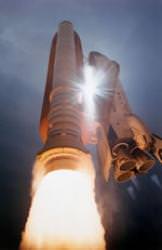[/caption]
Have astronauts from Earth ever stepped foot on Mercury? No, Mercury has been visited by spacecraft from Earth, but no human has ever gone into orbit around Mercury, let alone stepped on the surface. Just what would it take to visit Mercury?
Humans attempting to visit Mercury would find a similar environment to the Moon. Mercury is airless, so they would need a spacesuit to protect themselves from the vacuum of space. However, the temperatures on Mercury are much greater. During the daytime, the surface of Mercury at the equator rises to 700 Kelvin (427 degrees C). Just for comparison, the surface of the Moon only rises to 390 Kelvin (117 degrees C) during the daytime. So you would need some kind of protection from the intense heat.
But then, nighttime on Mercury dips down to only 100 Kelvin (-173 degrees C) – that’s the same low temperatures you get on the Moon at night. So an astronaut’s spacesuit would need to be able to keep an astronaut warm when they’re in the shade.
The travel time to the Moon is only about 3 days. But the travel time to Mercury is much longer. That’s partly because Mercury is much further away – 10s of millions km. But spacecraft also need to take special trajectories so they can get into orbit around Mercury. All of the spacecraft that have visited Mercury have taken longer than a year to reach the planet. That would be a long, hot journey for astronauts.
Maybe some day in the future humans will visit Mercury, but it hasn’t happened yet.
We have written many stories about Mercury here on Universe Today. Here’s an article about a the discovery that Mercury’s core is liquid. And how Mercury is actually less like the Moon than previously believed.
Want more information on Mercury? Here’s a link to NASA’s MESSENGER Misson Page, and here’s NASA’s Solar System Exploration Guide to Mercury.
We have also recorded a whole episode of Astronomy Cast that’s just about planet Mercury. Listen to it here, Episode 49: Mercury.
Reference:
NASA Star Child: Mercury


